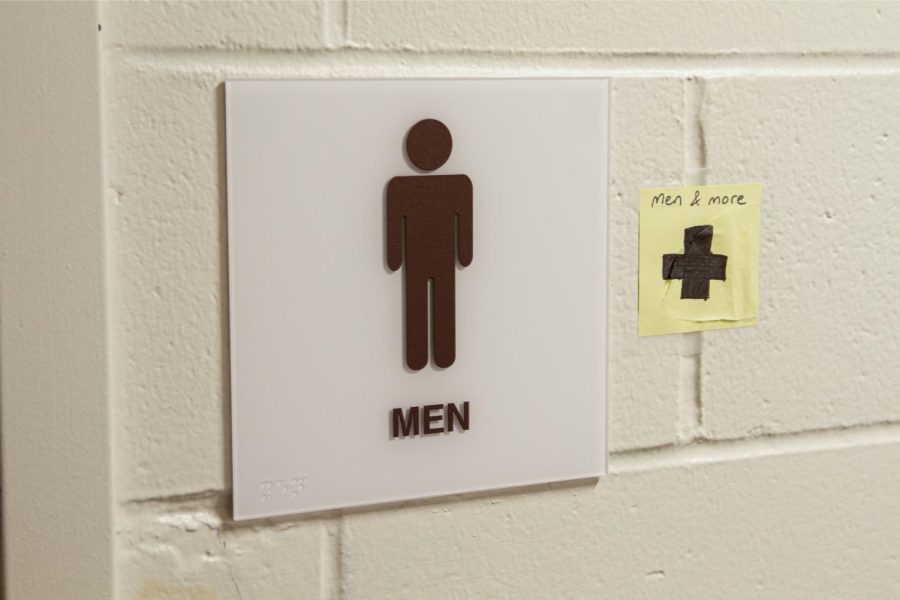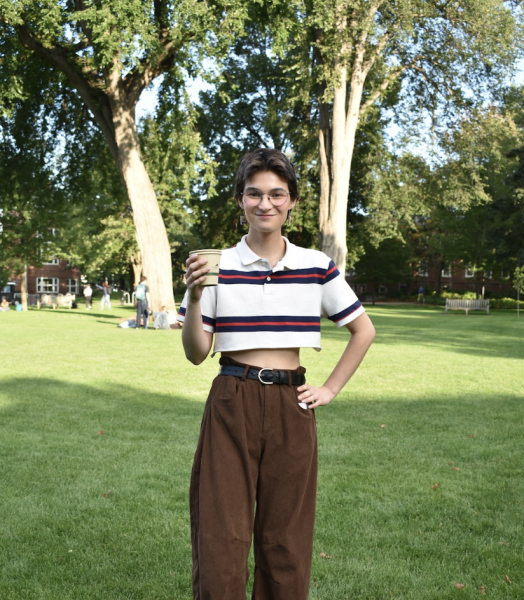First-year transgender students denied all gender housing
November 3, 2022
After four years of attending a school without the resources to support them as a non-binary student, Nico Lipman ’26 anticipated expressing their authentic self at Macalester — using the bathroom without experiencing dysphoria, living in community with other transgender students, and finally escaping gendered assumptions based on their appearance.
When Lipman’s room was assigned to Doty Residence Hall floor three, the only all male-identifying floor on campus, instead of all gender housing, they quickly realized that their dream of having the support they needed would not become a reality.
“I’m not part of the Doty one community,” Lipman said. “That’s the all gender community for trans and non-binary people. And I [was excluded] by Macalester, not by the community itself. Macalester excluded me from that. They drew those lines, which is not okay.”
Lipman is not the only student who did not receive the housing accommodations they need. The All-Gender Community in Kirk Hall section four accommodates 10 students total. Doty Hall floor one, the only all-gender housing option for first-years, does not accommodate all the students who applied for all gender housing.
Priscilla Perez is entering her first fall as residential services manager, and she plans on expanding access to all gender housing in the coming years.
“Transparently speaking, obviously this space that we have does not fulfill the needs of everybody considering that it’s a little space that we have for the all-gender community, for first-year students particularly,” Perez said.
Perez is working with the Department of Multicultural Life (DML), specifically Assistant Director of Diversity Education, Leadership and Inclusion Mads Clark, to fast track a plan to expand all-gender housing for the fall 2023 semester.
Clark now chairs the All Gender Space Committee, working with Residential Life and others to expand all gender housing on campus. The committee will consider religious and disability accommodations, as well as transgender students who want to live in a binary space. For students like Lipman, who noted that their mental disabilities interfere with their ability to change rooms, considering housing through an intersectional lens is necessary. Clark wants Macalester to be an affirming space for those exploring their identity, as well as those with a comfortable label.
“We cannot just be prescribing that college is the time to find yourself,” Clark said. “Because a lot of students come into college having a pretty concrete understanding of where they’re at, while also knowing that that can change and fluctuate, right?”
“That’s something that we also really need to be thinking more critically about. So expansion, and really thinking critically and intentionally is something that I think should really be highlighted,” they continued.
All students have access to the Gender & Sexuality Resource Center (GSRC), which is run through the DML. Students are also welcome to request a room change, although according to Perez, there are no more spare rooms available in the all-gender community.
Now, many first-years are wondering why they did not receive the housing accommodations they need. Perez explained that housing placements are primarily determined by Disability Services accommodations and residential first-year course placements. Residential Life examines the preferences of students who aren’t able to live in an all gender community in order to find a comfortable alternative, if possible.
For sophomores, juniors and seniors, residents in the All-Gender Community have previously been determined on a first-come-first-serve basis, something Clark hopes to change before the next housing selection period.
For many transgender students, particularly those who don’t feel comfortable in a gendered bathroom, living without convenient access to all gender bathrooms induces stress and dysphoria.
Maggie Oyamot ’26 lives on Turck Hall floor one, where the closest all gender bathrooms are on Turck floor three and Doty floor one. In an interview with The Mac Weekly, they recalled their initial reaction to their housing assignment.
“I was annoyed and also nervous a bit because [Turck Hall floor one] didn’t have all gender bathrooms,” Oyamot said. “I was kind of going through like ‘What am I going to do? Am I going to just go to Doty one for that? Or I’m going to have to use the women’s bathroom? Do I use the men’s bathroom? Which bathroom do I use?’”
Lipman experiences similar struggles on their all male-identifying floor.
“Showering in the ‘cis man shower’ was really nerve wracking for me because I have past experiences feeling really uncomfortable in situations like that, where I would be forced into an all male space,” Lipman said.
“I didn’t know I was trans in these times, but I always felt really uncomfortable, having to shower in an all male space. And now I know why. And now I have to do it anyway,” they said.
The first-year All-Gender Community offers more resources than an all-gender restroom. Eli Flewell ’26 noted that the greater Macalester community has supported them as a non-binary student. However, Flewell feels especially connected through the all gender community they live in. According to Flewell, the all gender floor feels “uplifting rather than just accepting”.
Living on an all male-identifying floor, Lipman hasn’t been met with the same level of support. Lipman shared that others often assume they’re a cisgender man when they’re seen entering Doty floor three.
“I feel like I’m being excluded from the trans space,” Lipman said. “And it makes it so easy for me to think of myself going back into the closet. It probably happens everyday — people just assume I’m a man. If I just instead walk down the Doty one hallway people would be like, ‘Oh, this person is probably non-binary, or trans or something.’”
Excluding students from all-gender housing has also affected residents living in all-gender housing. Because not everyone who needs all-gender housing has access to it, some Doty one residents feel they’re taking a resource from others.
“I feel guilty for living here,” Flewell said. “You’re like ‘Oh, like how is it fair that I have this environment when other people don’t?’”
While both Flewell and Oyamot have found the campus community to be an accepting and supportive space, Flewell feels that Macalester cannot call itself gender-affirming until it expands all gender housing.
“[Macalester knows] that there’s a bunch of people who wanted all gender housing and didn’t get it,” Flewell said. “And I think that ‘unfair’ is not the right word. It feels like Mac is going back on their advertised values.”














